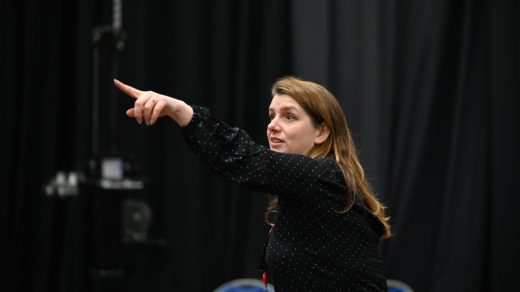The new Model Music Curriculum has real strengths

By Chris Cobb, CEO, ABRSM
The Department for Education’s (DfE) launch last month of a new Model Music Curriculum was an important public acknowledgement of the vital contribution that arts subjects make to the education and prospects of children today.
It is also a vital step towards stemming the very significant decline in interest in music as an academic subject. Indeed, as the Music Commission reported in 2019, the number of pupils taking A level music dropped by a quarter in just four years (interest in other subjects dropped by just 2.6%).
Reversing trends as stark as this takes time but the new curriculum has some very real strengths – though I should declare an interest here. ABRSM, the UK’s largest education music body, was contracted by DfE to work with a panel of experts – people as diverse as Julian Lloyd Webber and Feversham Primary School’s celebrated music teacher, Jimmy Rotheram – to draft the document and we are very proud of what we have produced together.
At its simplest, the Model Music Curriculum aims to support teachers in the delivery of music in schools, presenting a progressive route through the first nine years of school and encouraging skill sharing and collaboration.
It is designed to give primary pupils a minimum of one hour of music a week and help teachers understand what is required of them. Another fundamentally important characteristic is the new curriculum’s emphasis on the practical craft of music-making, composition and collaboration and its promotion of regular performance opportunities.

At secondary level it will promote a weekly music period for pupils in the first three years and support specialist teachers to give all students a sound grounding in music teaching and prepare those who want to progress to GCSE and A level music.
We are also particularly proud of the new curriculum’s eclecticism and a repertoire which includes music from the film, Slumdog Millionaire, to Argentinian Tango; Benjamin Britten to Errollyn Wallen and Anna Meredith.
We want music to do what it does for more young people and hope the broader repertoire will inspire young people from all backgrounds with a love of music and, with the right supporting conditions, challenge the sense of privilege which, for too long, has accompanied music learning.
The model curriculum is important too because it recognises the part that we all – schools, music services, music education charities, parents and other partner organisations – have to play in supporting delivery of the curriculum and the announcement of funding for music hubs which accompanied the curriculum is vital to support this.
The real impact of the new Model Music Curriculum will reach far beyond the lives of the young people it inspires and the communities of partners involved in its delivery.
By promoting progression routes for young musicians and opening up new talent pipelines for the conservatoires and universities, it has the potential to fill the concert hall stages of the future with a whole new generation of talent from all backgrounds.
Photo credit: Simon Dutson




